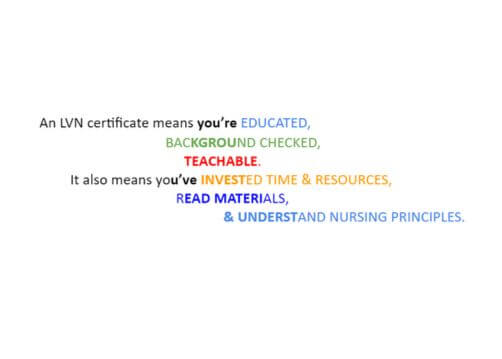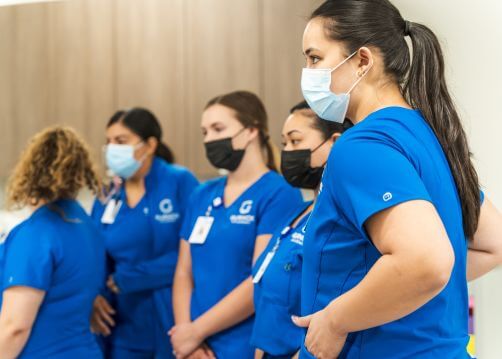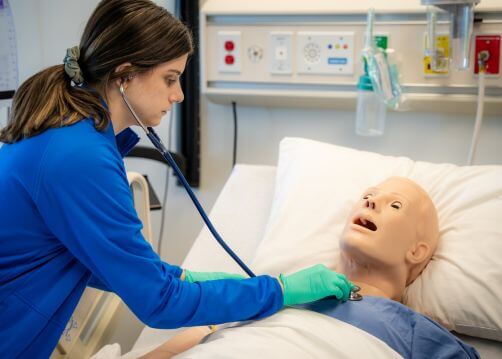What You Should Know About Getting An LVN License
Date: September 22, 2019
Are biology and chemistry among your favorite subjects? Are you a gentle and charitable person eager to bear a hand for a peer distressed? If the answer is “yes” for these two questions, then fasten your seat belt and go for an LVN license!
A person who owns an LVN license is a healthcare provider with practical experience and primary nursing education. There aren’t many universities that offer nursing as a degree. Therefore, many students enroll in a licensed vocational nursing school instead. This type of school can be finished in two years, and with the LVN license issued here, one might earn good money while others are still toiling in the classroom.
The necessary procedure to pass the admission is basic. Few months before graduation, you must research the web on the education establishments that give an LVN license. That could be a long and restless period, as the number of these institutions offering LVN licenses is higher and higher every day, and they are scattered all around the United States. Considering the LVN license, an individual interested in nursing should check more campus’ tenders, even if the most licensed vocational nursing schools will immediately request the attendant fill in the application form.
Although a vocational school is usually post-secondary in the United States, you need to know that an LVN license can be granted not only to a secondary school newly graduate. Someone willing to pursue his training years after finishing primary education may also get an LVN license.
Pay attention! Attaining an LVN license doesn’t mean you’re a registered nurse (RN). An LVN license invests someone in rendering primary nursing care, and a licensed vocational nurse (LVN) works exclusively under the supervision of a physician or an RN. The system allows the LVN’s scope of practice to include administering medications, drawing blood, and starting an intravenous line, but additional certification may be required for this.

If you possess an LVN license, you can labor in a hospital, long-term care facility, doctor’s office, or surgical center, providing many of the same services also performed by a registered nurse. As mentioned above, an LVN must be supervised in her activity and cannot do everything an RN does. For instance, though most LVNs can draw blood or administer injections, they rarely start an intravenous line.
An LVN license assumes you have to do a lot of cleaning in hospital settings, preparing rooms for new patients, bathing patients, or cleaning them up. These jobs are significant, yet some LVNs feel their supervisors abuse their authority by assigning them the most unpleasant duties.
Obtaining an LVN license involves spending one or two years training in anatomy, physiology, and patient care. Furthermore, a prospective LVN must attend one year of training in a hospital. After taking this preparation, you are eligible for licensure as LPN, and you’ll be given an LVN license.
Each state has a Board of Nursing, which establishes the precise condition for granting an LVN license. Bear in mind that a legal LVN license can be completed only by educational programs approved by your state’s Board of Nursing. To earn your LVN license, you must pass a state-administered nursing test called the NCLEX-PN examination.
In time, if you get used to the nursing environment, your LVN license maybe a ticket to a higher level of your career. Many nursing professionals begin their work as a licensed vocational nurse, and later on, they decide to enhance their knowledge.




